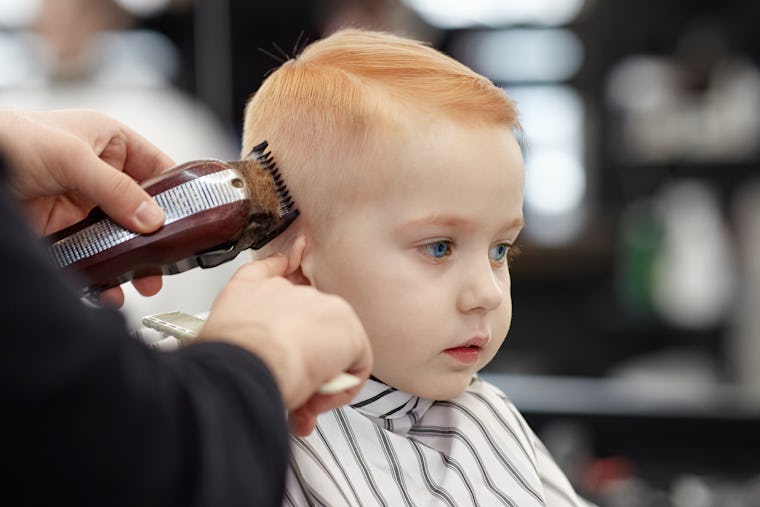
As a new parent, you may be wondering if cutting your baby's hair can make it grow faster. This is a common myth that many people believe in, but is there any truth to it?
The Myth of Cutting Baby Hair
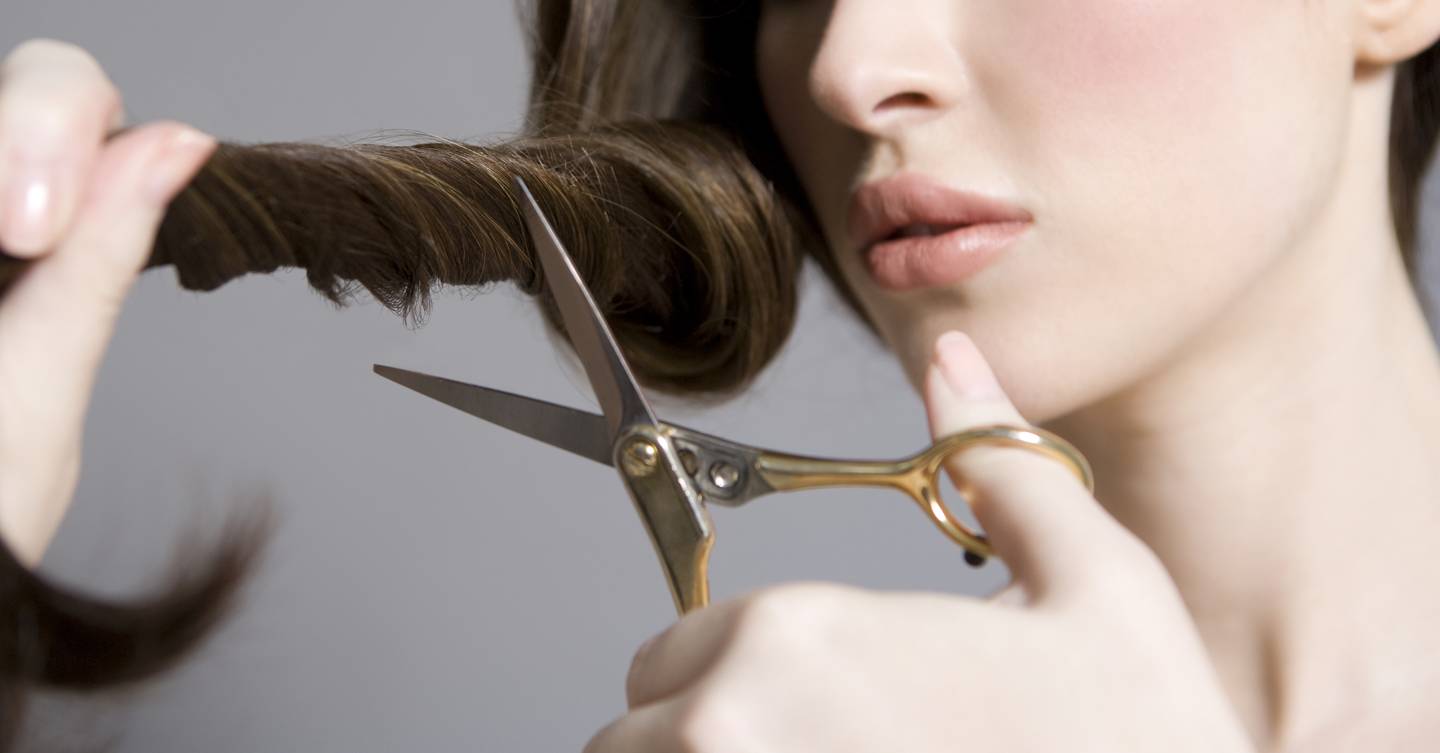
One of the most common myths about cutting baby hair is that it can make the hair grow faster and thicker. This is not true, and there is no scientific evidence to support this claim.
The truth is that hair growth is determined by genetics, hormones, and overall health. Cutting your baby's hair will not affect any of these factors.
When to Cut Your Baby's Hair

While cutting your baby's hair will not make it grow faster, there are other reasons why you may want to trim those locks.
One reason is to improve your baby's appearance. Over time, your baby's hair may become uneven or develop split ends. Trimming the hair can help to make it look neater and healthier.
Cutting your baby's hair can also make it more manageable. Long hair can get tangled easily, and trimming it can make it easier to brush and style.
How to Cut Your Baby's Hair
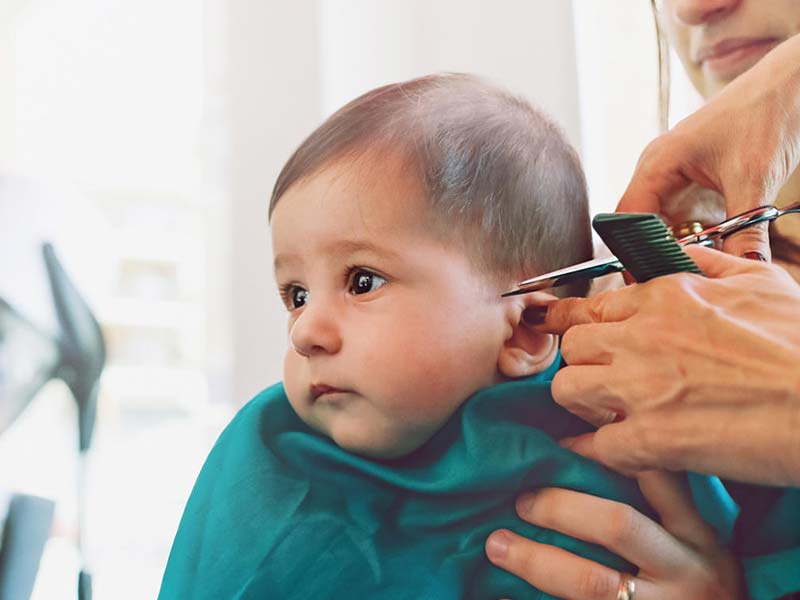
If you decide to cut your baby's hair, it is important to do so carefully and safely. Here are some tips to help you get started:
- Choose a time when your baby is calm and relaxed.
- Use sharp scissors that are specifically designed for cutting hair.
- Start by trimming small sections of hair at a time, and be careful not to cut too much off at once.
- Have someone hold your baby still while you cut the hair.
- Be prepared for your baby to move around and fuss during the process.
The Bottom Line

While cutting your baby's hair will not make it grow faster, there are other reasons why you may want to trim those locks. Just be sure to do so carefully and safely, and seek the advice of a professional if you have any concerns.
Remember, your baby's hair will grow at its own pace, and there is nothing you can do to speed up the process. So sit back, relax, and enjoy watching your little one grow!
Related video of Does Cutting Baby Hair Make It Grow Faster?
Introduction
Cracking your knuckles is a common habit that many people have. Some people do it out of nervousness while others do it out of habit. But does cracking your knuckles cause arthritis? This is a question that has been asked for years, and there are many myths surrounding the topic. In this article, we will explore the truth behind cracking your knuckles and whether or not it can lead to arthritis.What Happens When You Crack Your Knuckles?
When you crack your knuckles, you are essentially creating a vacuum in the joint. This vacuum causes the gases in the joint fluid to form bubbles, which then collapse and create the popping sound that you hear. Contrary to popular belief, cracking your knuckles does not actually cause any damage to your joints.
What is Arthritis?
Arthritis is a condition that causes inflammation in the joints. There are many different types of arthritis, but the most common is osteoarthritis. This type of arthritis occurs when the cartilage in the joint starts to break down, causing pain and stiffness.Is There a Link Between Cracking Your Knuckles and Arthritis?
Despite what many people believe, there is no evidence to suggest that cracking your knuckles causes arthritis. In fact, a study published in the Journal of the American Board of Family Medicine found that there was no correlation between knuckle cracking and arthritis.Other Myths About Cracking Your Knuckles
There are many other myths surrounding the topic of cracking your knuckles. One of the most common is that it can lead to weakened grip strength. However, this has also been debunked by scientific research.Another myth is that cracking your knuckles can lead to swollen joints. Once again, there is no evidence to suggest that this is true.Should You Stop Cracking Your Knuckles?
While cracking your knuckles may not cause arthritis, it can still be annoying to those around you. If you want to stop cracking your knuckles, there are a few things you can try. One is to keep your hands busy with a stress ball or other object. Another is to wear a rubber band around your wrist and snap it every time you feel the urge to crack your knuckles.Conclusion
In conclusion, cracking your knuckles does not cause arthritis. While it may be annoying to those around you, it is not harmful to your joints. If you want to stop cracking your knuckles, there are many ways to do so. So go ahead and crack away, if that's what you enjoy.Related video of Does Cracking Your Knuckles Cause Arthritis?

Coffee is a popular beverage consumed by millions of people worldwide. It is known for its ability to keep you awake and energized. However, many people wonder if coffee has another effect on their body - making them poop.
What is coffee?
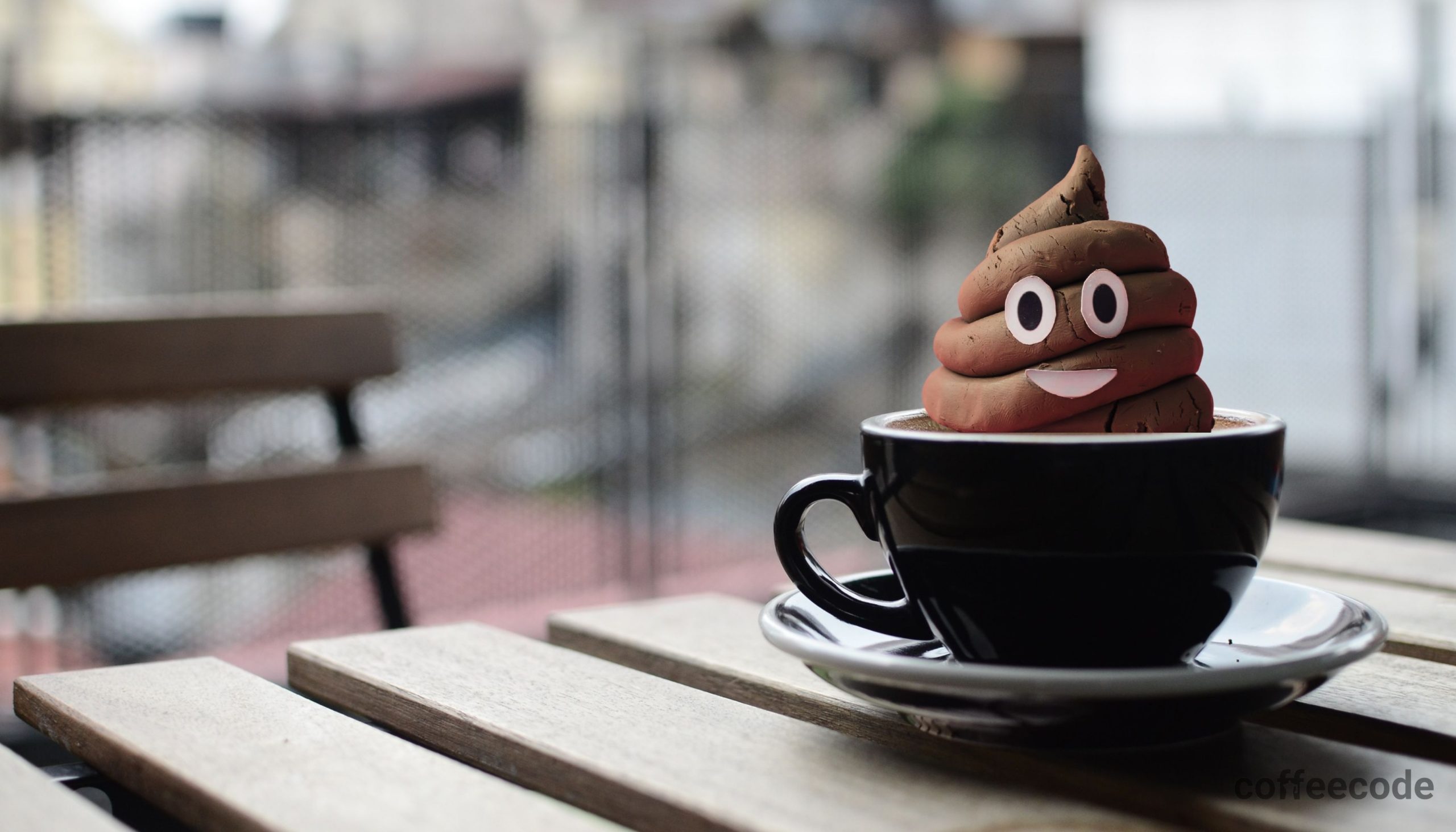
Coffee is a drink made from roasted coffee beans. These beans contain caffeine, which is a natural stimulant. When consumed, caffeine stimulates the central nervous system and increases alertness.
What happens when you drink coffee?

When you drink coffee, the caffeine in it stimulates the muscles in your digestive system. This can cause the muscles to contract, which leads to an urge to poop.
Why does coffee make you poop?
Drinking coffee can cause an increase in the production of stomach acid, which can lead to an increase in peristalsis - the contraction of muscles in the digestive tract that help move food and waste through the body. This increase in peristalsis can cause a bowel movement.
Does coffee affect everyone the same way?

No, coffee affects everyone differently. Some people may experience the urge to poop after drinking coffee, while others may not. The effect of coffee on bowel movements can also depend on factors such as age, sex, and individual differences in digestive processes.
Is coffee a laxative?

While coffee can have a laxative effect, it is not considered a true laxative. Laxatives are substances that are specifically designed to promote bowel movements. Coffee is a beverage that can cause an increase in peristalsis, which can lead to a bowel movement.
Can drinking too much coffee cause diarrhea?

Yes, drinking too much coffee can cause diarrhea. This is because caffeine is a diuretic, which means it can cause fluid loss in the body. When this happens, the body may respond by producing more fluid to replace what was lost. This can lead to diarrhea.
How much coffee is too much?

The amount of coffee that is considered too much can vary from person to person. Generally, consuming more than 400 milligrams of caffeine per day can lead to negative side effects such as jitteriness, anxiety, and insomnia. This is equivalent to about four cups of coffee per day.
What are the benefits of drinking coffee?
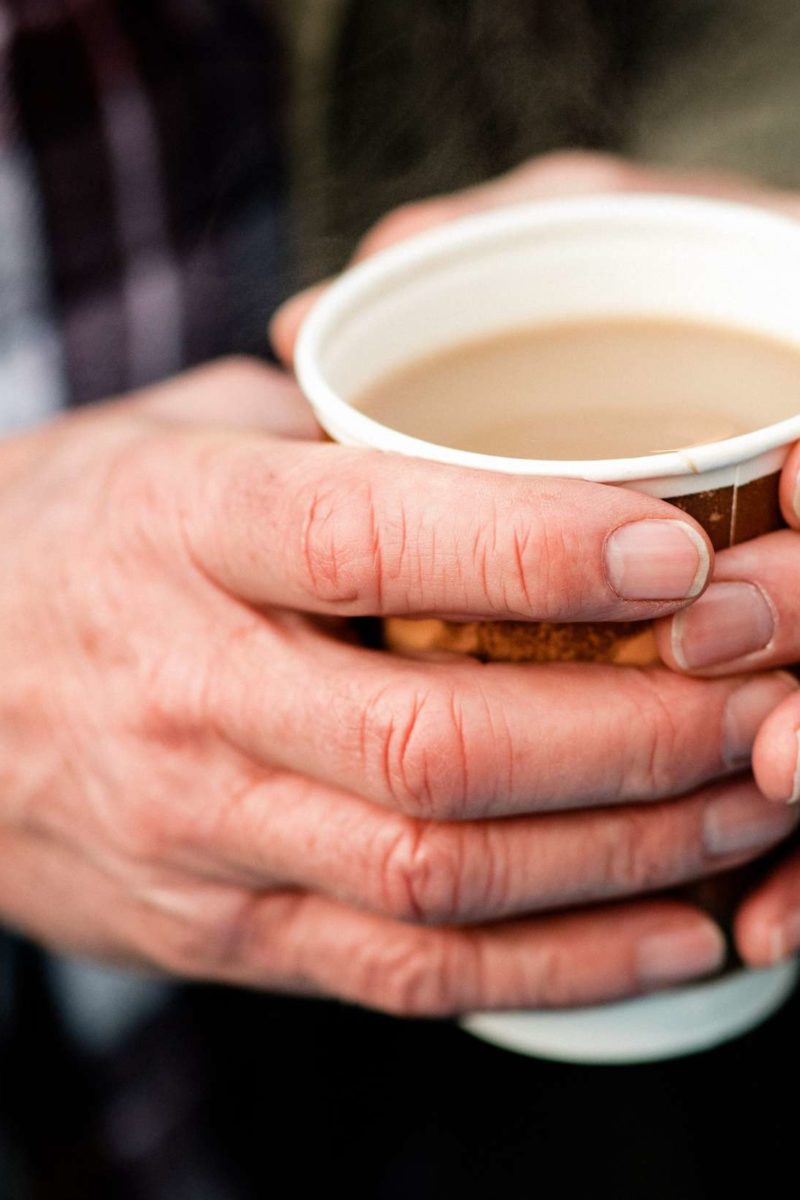
While coffee has a reputation for causing bowel movements, it also has many potential health benefits. Drinking coffee has been linked to a reduced risk of several diseases, including type 2 diabetes, liver disease, and Parkinson's disease. It may also improve brain function and help with weight loss.
Conclusion
So, does coffee make you poop? The answer is yes, drinking coffee can lead to a bowel movement. However, the effect of coffee on bowel movements can vary from person to person. While coffee can have a laxative effect, it is not considered a true laxative. Drinking too much coffee can also lead to negative side effects such as diarrhea. Despite this, coffee has many potential health benefits and can be a part of a healthy diet when consumed in moderation.
Related video of Does Coffee Make You Poop?

One of the most common side effects of chemotherapy is hair loss. For many people, the idea of losing their hair can be very distressing. However, not everyone who undergoes chemotherapy will experience hair loss. In this article, we'll take a closer look at the relationship between chemotherapy and hair loss.
What is chemotherapy?

Chemotherapy is a type of cancer treatment that uses drugs to destroy cancer cells. These drugs are usually given intravenously, but they can also be given orally or topically. Chemotherapy drugs work by targeting rapidly dividing cells, including cancer cells.
How does chemotherapy cause hair loss?

Chemotherapy drugs target not only cancer cells but also rapidly dividing cells in the body, including hair follicles. This is why hair loss is a common side effect of chemotherapy. The drugs damage the hair follicles, which can cause hair to fall out.
Does everyone who undergoes chemotherapy experience hair loss?

No, not everyone who undergoes chemotherapy will experience hair loss. The likelihood of hair loss depends on the type of chemotherapy drugs used, the dosage, and the individual's response to the drugs. Some people may experience only mild thinning of the hair, while others may experience complete hair loss.
Can hair loss be prevented during chemotherapy?

Unfortunately, there is no guaranteed way to prevent hair loss during chemotherapy. However, there are some things that may help reduce the severity of hair loss, such as using a cold cap during treatment or taking certain medications.
What is a cold cap?
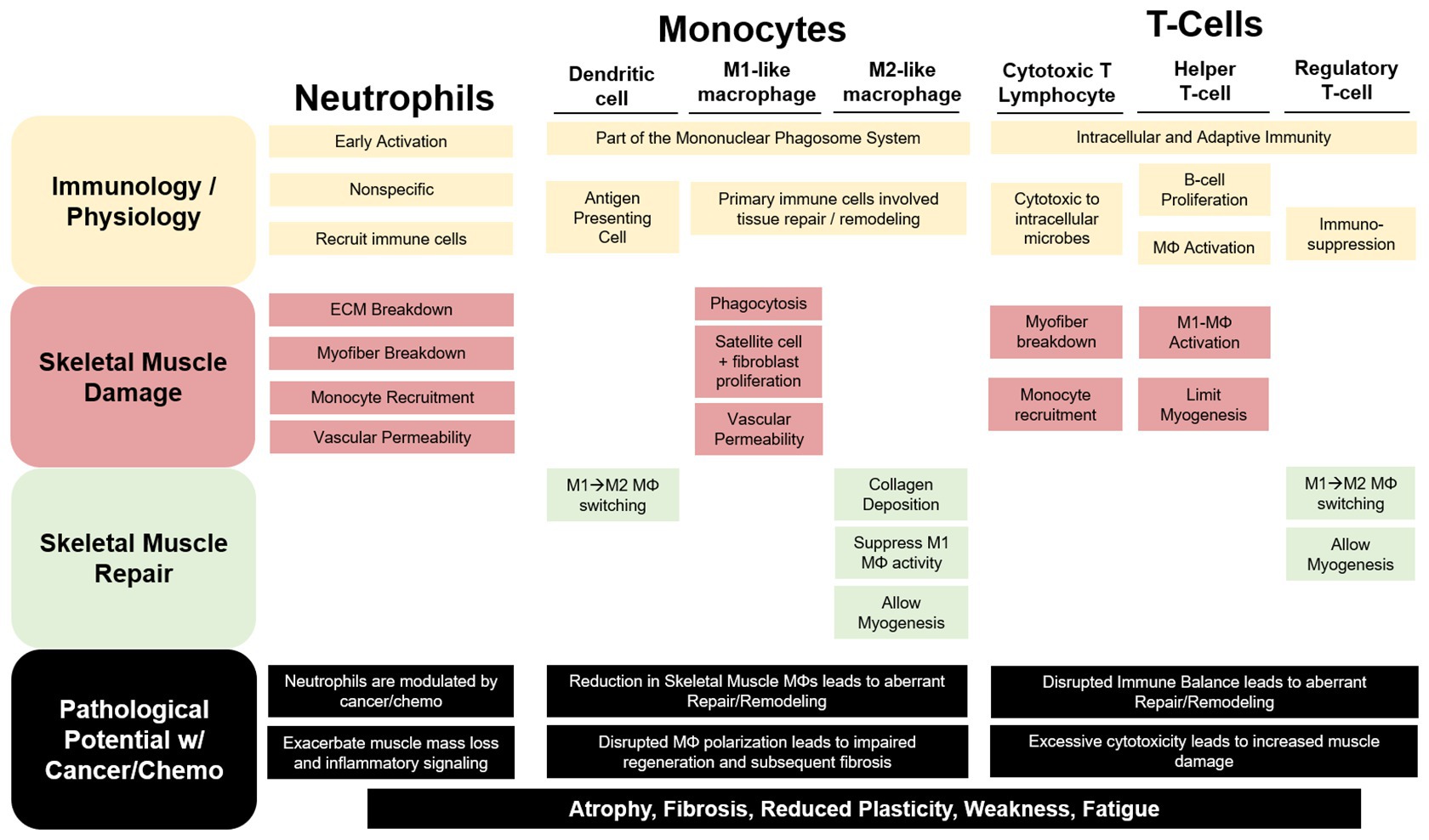
A cold cap is a device that is worn on the head during chemotherapy. The cap is cooled to a very low temperature, which can help reduce blood flow to the scalp and protect the hair follicles from the chemotherapy drugs. However, not all cancer centers offer cold caps, and they are not effective for everyone.
What are some other side effects of chemotherapy?

In addition to hair loss, chemotherapy can cause a variety of other side effects, including nausea, vomiting, fatigue, loss of appetite, and increased risk of infection. These side effects can be managed with medications and other treatments.
Is hair loss permanent after chemotherapy?

For most people, hair loss due to chemotherapy is temporary. Hair usually begins to grow back a few weeks after treatment ends. However, the new hair may be different in texture, color, or thickness than the original hair.
What can be done to promote hair regrowth after chemotherapy?

There are some things that may help promote hair regrowth after chemotherapy. These include eating a healthy diet, getting regular exercise, and avoiding harsh chemicals and heat styling tools. Some people also find that using gentle hair care products and massaging the scalp can help stimulate hair growth.
What should I do if I experience hair loss during chemotherapy?

If you experience hair loss during chemotherapy, it's important to remember that this is a temporary side effect. Many people find it helpful to talk to a counselor or support group about their feelings surrounding hair loss. You may also want to consider getting a wig or other head covering to help you feel more comfortable and confident.
Conclusion
While hair loss is a common side effect of chemotherapy, not everyone who undergoes treatment will experience it. There are some things that may help reduce the severity of hair loss, such as using a cold cap or taking certain medications. Hair loss due to chemotherapy is usually temporary, and hair usually begins to grow back a few weeks after treatment ends. If you experience hair loss during chemotherapy, it's important to remember that this is a temporary side effect and to seek support from a counselor or support group.
Related video of Does Chemo Always Cause Hair Loss

Introduction
Body hair is a part of our natural human anatomy, and while some people love it, others prefer to be hairless. When it comes to removing hair, many people believe that shaving, waxing, or plucking will cause the hair to grow back thicker. This is a myth that has been around for a long time, and in this article, we will explore the truth behind it.
What Causes Hair Growth?
Hair growth is a natural process that occurs in all mammals, including humans. Hair follicles, which are located beneath the skin's surface, produce hair. The growth of hair is controlled by hormones and genetics, and it varies from person to person.

Why Do People Believe That Hair Grows Back Thicker?
The myth that hair grows back thicker after shaving or waxing may have arisen due to the fact that when hair is cut, it appears thicker at the base. However, this is only an illusion, and the hair is not actually thicker. When hair grows back after being cut, it is the same thickness and color as it was before.
What Happens When Hair Is Removed?
When hair is removed by shaving, waxing, or plucking, it is only removed from the surface of the skin. The hair follicle beneath the skin's surface is not affected, and the hair will continue to grow as it did before. However, when hair grows back, it may feel coarser and stubbly because the end of the hair has been cut straight across.
How Does Hair Grow?
Hair grows in three stages: anagen, catagen, and telogen. The anagen phase is the active growth phase, and hair can grow up to 1 inch per month during this stage. The catagen phase is the transitional phase, and the hair follicle shrinks. The telogen phase is the resting phase, and the hair falls out. After the telogen phase, the anagen phase begins again, and a new hair grows.
Does Hair Grow Back Thicker After Menopause?
After menopause, many women notice that their hair becomes thinner and finer. This is because the body produces fewer hormones that stimulate hair growth. Hair does not grow back thicker after menopause, and in fact, it may grow back thinner.
Conclusion
In conclusion, the myth that hair grows back thicker after shaving, waxing, or plucking is just that – a myth. Hair grows back at the same thickness and color as it was before, and any perceived difference in thickness is just an illusion. It is important to remember that hair removal is a personal choice, and there is no right or wrong answer. Whether you prefer to be hairless or embrace your body hair, it is entirely up to you.
Related video of Does Body Hair Grow Back Thicker?

Bill Gates is one of the most well-known names in the world. He is the co-founder of Microsoft and has been one of the richest people in the world for many years. But what about his personal life? Does Bill Gates have a family?
Bill Gates’ Wife and Children

Yes, Bill Gates does have a family. He is married to Melinda Gates, and together they have three children. The Gates family is known for being very private, so not much is known about their personal lives.
Bill and Melinda Gates were married in 1994, and they have three children together: Jennifer, Rory, and Phoebe. The couple is known for their philanthropic work, and they have donated billions of dollars to various causes around the world through the Bill and Melinda Gates Foundation.
The Gates Family’s Private Life

The Gates family is notoriously private, and they do not often share details about their personal lives. In fact, they have made it a point to keep their children out of the public eye as much as possible.
Despite this, there have been a few glimpses into the Gates family’s private life over the years. For example, Bill Gates has spoken in interviews about how he and Melinda raise their children with a strong sense of responsibility and a desire to give back to the world.
The Gates Family’s Philanthropic Work

One of the most well-known aspects of the Gates family’s life is their philanthropic work. Through the Bill and Melinda Gates Foundation, the family has donated billions of dollars to various causes around the world.
The Gates Foundation focuses on issues such as global health, education, and poverty. The family is known for their hands-on approach to philanthropy, and they often work directly with organizations and individuals to make a difference.
The Gates Family’s Future

As of 2021, Bill and Melinda Gates are in the process of getting a divorce. Despite this, they have made it clear that they will continue to work together on their philanthropic efforts through the Gates Foundation.
It is unclear how this divorce will impact the Gates family’s private life and philanthropic work in the future. However, it is likely that they will continue to make a significant impact on the world through their charitable efforts.
Conclusion
In conclusion, Bill Gates does have a family. He is married to Melinda Gates, and together they have three children. The Gates family is known for being very private, and they do not often share details about their personal lives. However, they are also known for their philanthropic work, and they have donated billions of dollars to various causes around the world through the Bill and Melinda Gates Foundation.
Related video of Does Bill Gates Have A Family?
Plaque is a sticky film of bacteria that forms on teeth and can cause tooth decay and gum disease. While regular brushing and flossing can help remove plaque, some people turn to alternative methods like baking soda and salt to help remove it. But do these methods actually work? Let's take a closer look.
What Is Baking Soda?
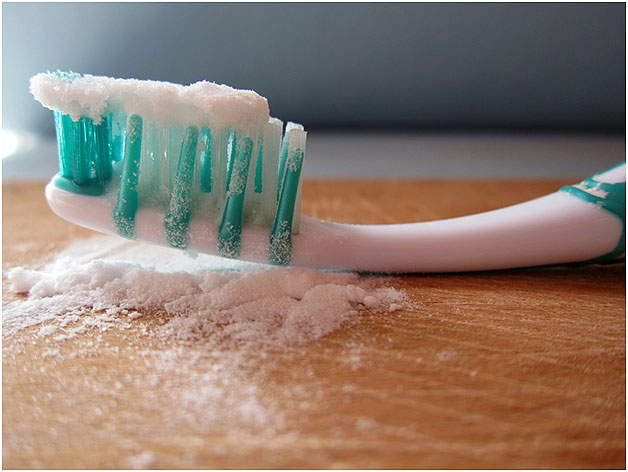
Baking soda, also known as sodium bicarbonate, is a white powder that is commonly used as a leavening agent in baking. It is also used for cleaning and can be found in many toothpastes and mouthwashes.
What Is Salt?

Salt, also known as sodium chloride, is a mineral that is commonly used for seasoning food. It can also be found in some toothpastes and mouthwashes.
How Do Baking Soda And Salt Remove Plaque?

Baking soda and salt are both abrasive substances that can help remove plaque from teeth. When mixed with water, baking soda forms a paste that can be used to scrub teeth and remove plaque. Salt can also be used in a similar way, as it can help scrub away plaque and stains.
Are Baking Soda And Salt Safe For Teeth?
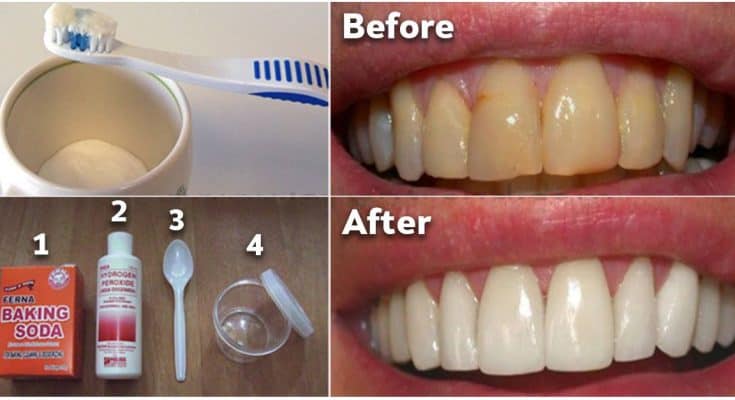
While baking soda and salt can help remove plaque, they can also be abrasive to teeth and gums. Using them too often or too vigorously can damage tooth enamel and irritate gums, leading to sensitivity and other dental problems.
What Are The Other Options For Removing Plaque?
The best way to remove plaque is to brush and floss regularly, at least twice a day. You can also use mouthwash to help kill bacteria and freshen breath. If you have a lot of plaque buildup, you may need to visit a dentist for a professional cleaning.
Conclusion
While baking soda and salt can help remove plaque, they should be used with caution and not as a substitute for regular brushing, flossing, and dental visits. If you're looking for a natural way to remove plaque, you may want to try oil pulling or using apple cider vinegar. However, it's always best to talk to your dentist before trying any new dental care methods.
Related video of Does Baking Soda And Salt Remove Plaque?

Asparagus is a green vegetable that is known for its unique flavor and health benefits. However, there has been a long-standing question about asparagus that has puzzled many people: Does asparagus make your pee smell?
If you've ever eaten asparagus and then noticed a strange odor coming from your urine, you're not alone. Many people have experienced this phenomenon, and it has been the subject of much scientific research.
What Causes the Smell?

The smell that is associated with asparagus urine is caused by a chemical compound called asparagusic acid. This compound is found exclusively in asparagus and is broken down into a group of sulfur-containing compounds when it is metabolized by the body. These compounds are volatile and have a strong, pungent odor that can be detected in urine.
Is Everyone Affected?
Not everyone is affected by the smell of asparagus urine. In fact, only about 25% of the population has the ability to detect the odor. This is because the ability to detect the sulfur-containing compounds in asparagus urine is genetically determined.
How Long Does the Smell Last?

The smell of asparagus urine usually appears within 30 minutes of eating asparagus and can last for several hours. The intensity of the odor can vary depending on the individual and the amount of asparagus that was consumed.
Is the Smell Harmful?

The smell of asparagus urine is not harmful and is not a sign of any underlying health issues. It is simply a harmless side effect of eating asparagus.
Can You Prevent the Smell?

There is no way to prevent the smell of asparagus urine completely, but there are a few things you can do to minimize it. Drinking plenty of water can help dilute the sulfur-containing compounds in your urine, which can reduce the intensity of the odor. Additionally, some people have reported that eating certain foods, such as citrus fruits, can help mask the smell.
Conclusion
So, does asparagus make your pee smell? The answer is yes, but only for some people. The smell is caused by a chemical compound called asparagusic acid, which is metabolized by the body into volatile sulfur-containing compounds. While the odor is harmless, it can be unpleasant for some people. If you're one of the 25% of the population that can detect the smell of asparagus urine, don't worry – it's perfectly normal!
Related video of Does Asparagus Make Your Pee Smell

Introduction
When it comes to cancer treatment, chemotherapy is one of the most common options. It involves using powerful drugs to destroy cancer cells in the body. However, one of the most well-known side effects of chemotherapy is hair loss. But does all chemo make you lose your hair? Let's find out.
How Does Chemotherapy Cause Hair Loss?
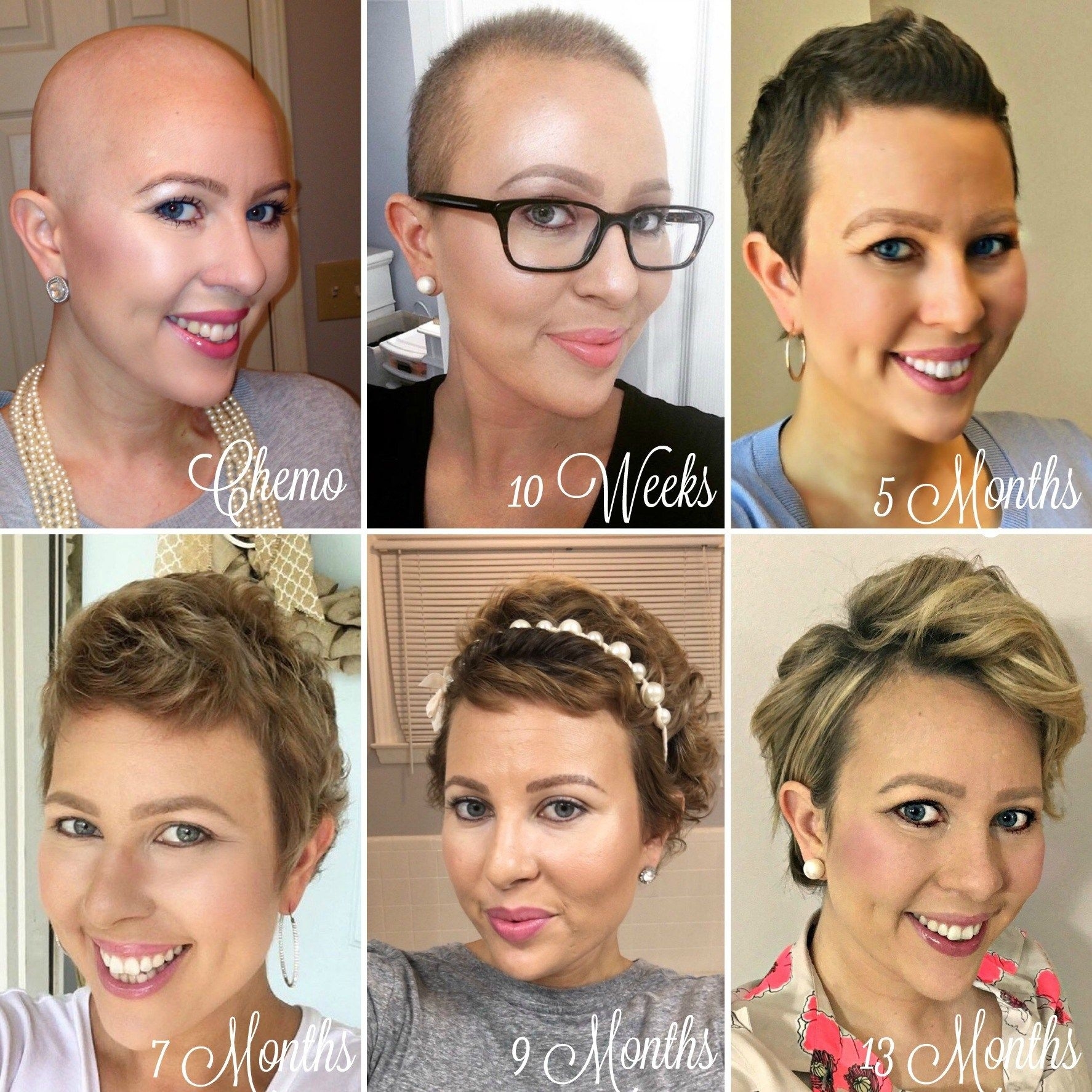
Chemotherapy drugs target rapidly dividing cells, which includes cancer cells. Unfortunately, hair follicle cells also divide rapidly, leading to temporary hair loss. The severity of hair loss can vary depending on the drugs used and the individual's sensitivity to them.
Which Types of Chemotherapy Cause Hair Loss?

Not all chemotherapy drugs cause hair loss. In general, drugs that are more likely to cause hair loss are those that are taken intravenously rather than orally.
Some examples of chemotherapy drugs that commonly cause hair loss include:
- Adriamycin (doxorubicin)
- Cytoxan (cyclophosphamide)
- Taxotere (docetaxel)
- Taxol (paclitaxel)
- Vincristine
Are There Any Chemotherapy Drugs That Don't Cause Hair Loss?

Yes, there are some chemotherapy drugs that are less likely to cause hair loss. These include:
- Bleomycin
- Carboplatin
- Gemcitabine
- Methotrexate
- Vinblastine
However, it's important to note that even these drugs can cause hair loss in some individuals.
Does the Dosage of Chemotherapy Affect Hair Loss?

The dosage of chemotherapy can also play a role in hair loss. Higher doses of chemotherapy drugs are more likely to cause hair loss than lower doses. However, even low doses of certain drugs can still cause hair loss.
Can You Prevent Hair Loss During Chemotherapy?

Unfortunately, there is no guaranteed way to prevent hair loss during chemotherapy. However, there are some things you can do to potentially minimize hair loss:
- Cold cap therapy: This involves wearing a cap filled with cold gel during chemotherapy to reduce blood flow to the scalp, potentially minimizing hair loss.
- Gentle hair care: Avoiding harsh chemicals and treatments on your hair can help minimize hair loss.
- Scalp cooling: This involves using a specialized device to cool the scalp before and during chemotherapy to minimize hair loss.
Is Hair Loss Permanent After Chemotherapy?

Thankfully, hair loss from chemotherapy is usually temporary. Most people will experience regrowth of their hair within a few months after completing treatment. However, the texture and color of the regrown hair may be different.
Conclusion

While not all chemotherapy drugs cause hair loss, it is a common side effect of many of them. The severity of hair loss can vary depending on the drugs used and the individual's sensitivity to them. While there is no guaranteed way to prevent hair loss during chemotherapy, there are some things you can do to potentially minimize it. Thankfully, hair loss from chemotherapy is usually temporary, and most people will experience regrowth of their hair within a few months after completing treatment.